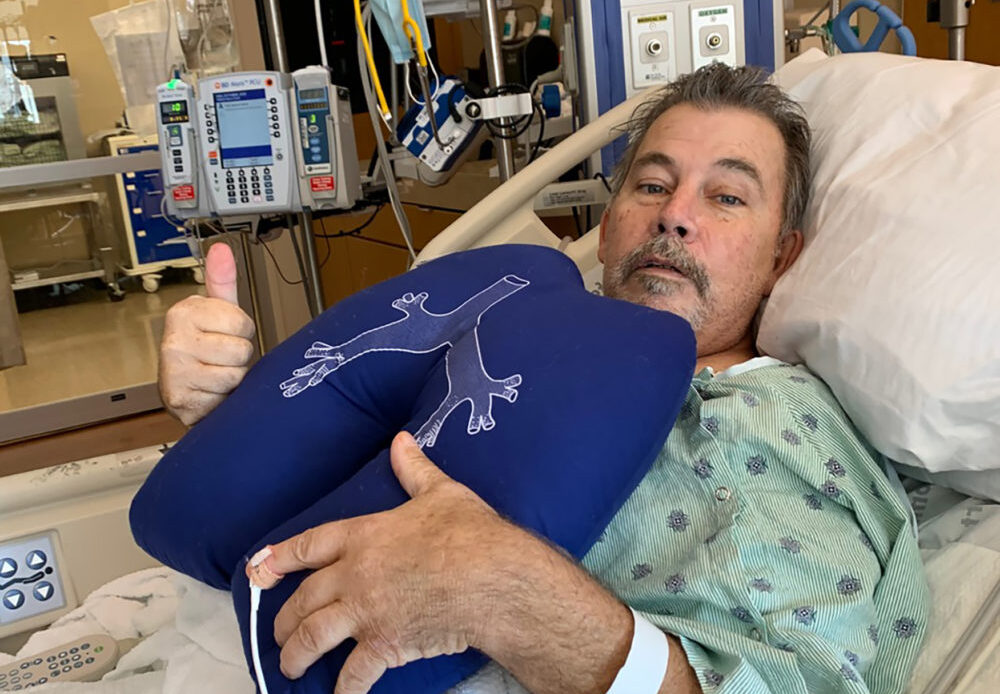
About one in 10 lung transplants in the United States now go to COVID-19 patients, according to data from the United Network for Organ Sharing, or UNOS.
The trend is raising questions about the ethics of allocating a scarce resource to people who have chosen not to be vaccinated against the coronavirus.
“They are accumulating on a steady basis. So it’s very much a real thing,” says David Klassen, chief medical officer for UNOS.
“If there were more lungs available for transplants, I believe the numbers would be greater than they are,” he says.
In all, 238 people across the country have received lung transplants due to COVID-19 since the first such operations were tracked in August of 2020, according to the latest UNOS figures from October of this year.
Lung transplants for COVID patients rose tenfold between the first year of the pandemic and 2021, according to UNOS data, which also shows transplants for other top lung diseases, like emphysema, cystic fibrosis and pulmonary fibrosis, are down compared to prior years.
“It’s happening in the U.S. It’s also happening in Canada. There was just a paper out from Western Canada about this causing a huge surge in the number of lung transplants there. It’s a big problem,” says David Mulligan, chair of the Yale-New Haven Health Transplantation Center.
More than 2,000 lung transplant operations are usually done each year in the U.S., costing around $1.2 million for a double lung transplant.
The rise in COVID-related transplants is forcing doctors to grapple with how to best manage who gets them, especially now that vaccines are widely available.
“When somebody contracts such severe COVID that they need a lung transplant, and they got it refusing to get a vaccine, it’s a really ethical dilemma,” says Mulligan. “How can they just jump in and take a lung away from somebody who’s sick, but has been doing the best they can to take care of themselves and avoid getting COVID?”
Transplant centers weigh a lot of different factors when listing people who need an organ. But social and behavioral factors — such as how people came to be sick — are not usually among them.
People who smoked can be eligible for a lung transplant, just like people who drank alcohol in excess can also be listed for a new liver if they’ve stayed smoke-free or sober for six months.
Not judging people’s past behavior is fairly standard in medicine. But future behavior, when it comes to transplants, is fair game, according to Olivia Kates, an assistant professor of medicine at Johns Hopkins.
“I think [COVID-19 patients] should be subject to the same expectation, that they should either be vaccinated or be able to demonstrate immunity to COVID-19 going forward, so that their next set of lungs is not subject to the same risk,” Kates says.

